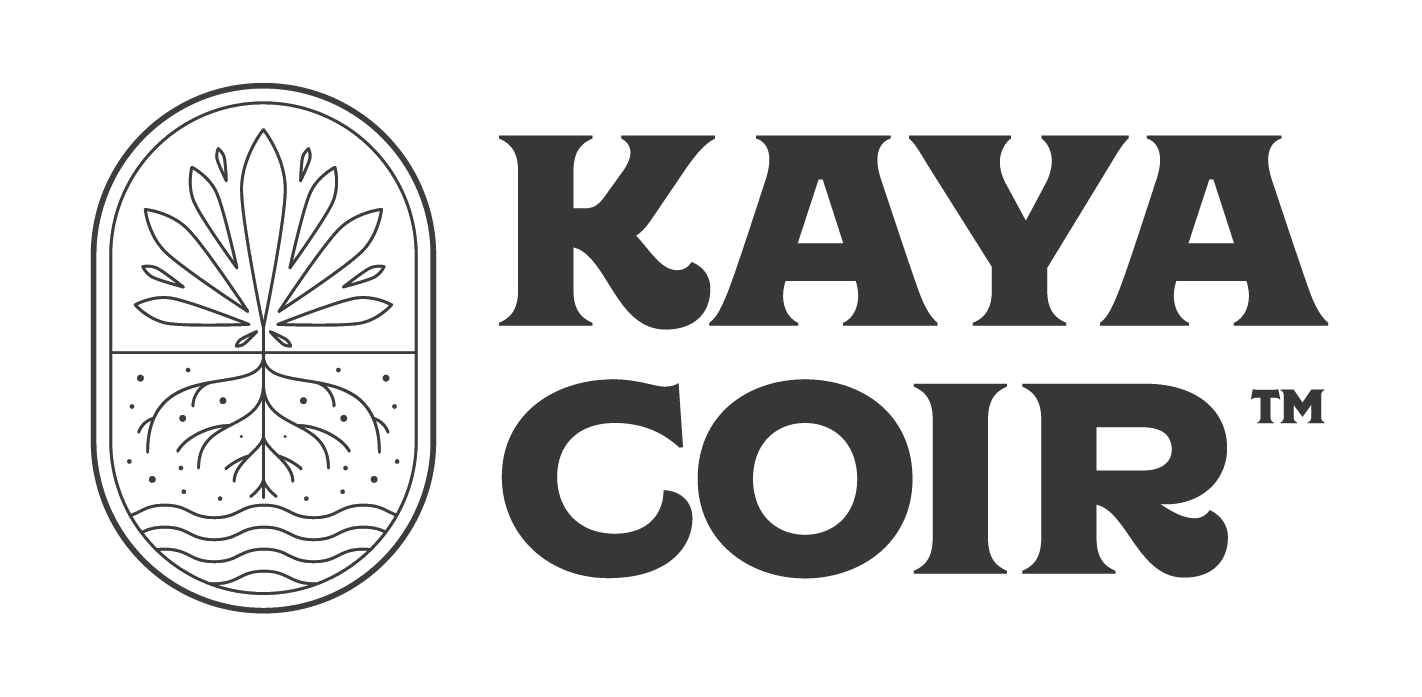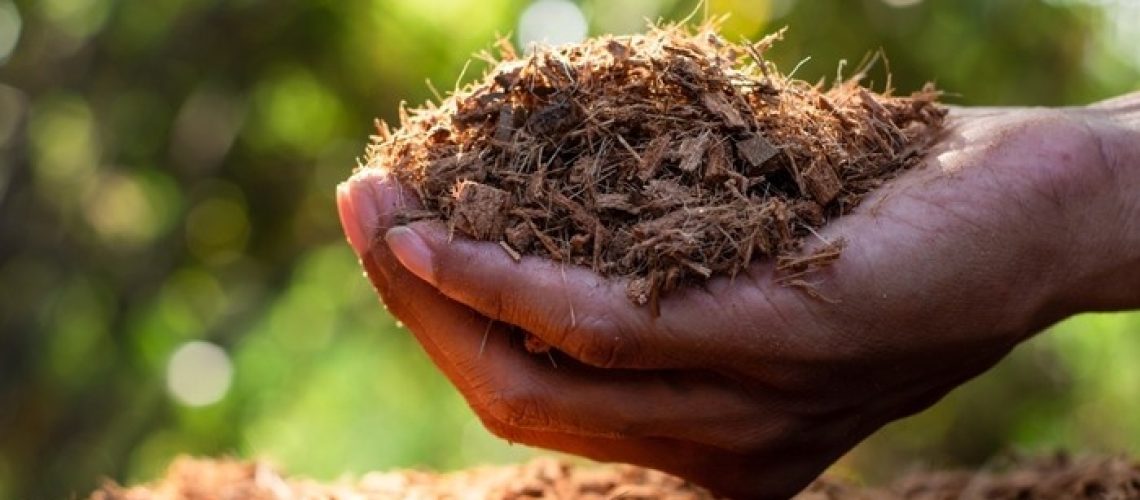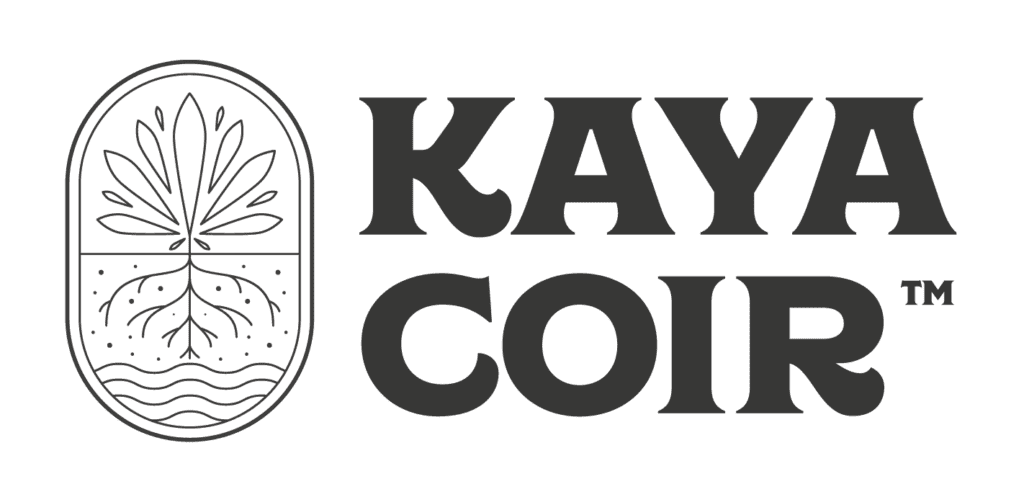Greenhouses thrive on precision. Every choice, from temperature to irrigation, affects plant health and yield. Among these factors, the growing medium stands out as the foundation of success. For years, growers have experimented with soil mixes, peat, and synthetic substrates. Yet one option has proven itself as both sustainable and reliable: the compressed coco coir block.
At Kaya Coir, we have seen firsthand how this natural product changes the way greenhouse growers cultivate crops. From better water management to eco-friendly sourcing, compressed coir is not just another medium, it is a solution built for modern farming.
Table of Contents
- What is a Compressed Coco Coir Block
- Why Greenhouses Need a Reliable Substrate
- Advantages of Using Compressed Coco Coir Blocks
- Superior Water Retention
- Optimal Aeration
- Sustainable and Renewable
- Space-Saving Transport and Storage
- The Role of pH and EC Balance in Plant Growth
- How Compressed Coco Coir Blocks are Made at Kaya Coir
- Applications of Compressed Coco Coir in Greenhouses
- Comparing Coco Coir with Other Substrates
- Tips for Preparing and Using Compressed Coco Coir Blocks
- Why Kaya Coir Leads in Supplying Premium Compressed Coco Coir Blocks
- Growing Smarter with Sustainable Media
What is a Compressed Coco Coir Block
A compressed coco coir block is made by processing the husk of coconuts, extracting fibers, and compressing the residue into compact blocks. Once hydrated, these blocks expand into a light, airy substrate perfect for greenhouse crops. The material is naturally rich in lignin and cellulose, which ensures durability and a long-lasting structure.
Why Greenhouses Need a Reliable Substrate
Greenhouses are environments designed for efficiency, but efficiency only works if the foundation is right. Soil often carries pests, diseases, and inconsistencies in texture. Synthetic substrates may offer uniformity but lack sustainability. A medium must balance water retention, drainage, and root aeration, qualities that coco coir naturally provides.
Advantages of Using Compressed Coco Coir Blocks
Superior Water Retention
Coco coir holds moisture exceptionally well without drowning roots. In greenhouses, where irrigation systems need consistent performance, this property allows plants to access water steadily. For crops like tomatoes, cucumbers, or peppers, it means fewer fluctuations and stronger root systems.
Optimal Aeration
Good air circulation around the root zone is vital for nutrient uptake. Coco coir’s fibrous texture creates micro air pockets that keep oxygen available to roots, preventing the common problem of compaction found in soil-based media.
Sustainable and Renewable
Unlike peat moss, which takes centuries to regenerate, coconut husks are a renewable byproduct of the coconut industry. By choosing compressed coco coir blocks, growers contribute to reducing agricultural waste while adopting a greener approach to farming.
Space-Saving Transport and Storage
Compressed blocks are lightweight and compact. A single block can expand multiple times its volume when hydrated, making it cost-effective for shipping and easy to store in bulk, an important factor for commercial greenhouse operations.
The Role of pH and EC Balance in Plant Growth
Plant nutrition is directly influenced by pH and electrical conductivity (EC) levels. Coco coir naturally falls within a favorable pH range of 5.8 to 6.5, ideal for most crops. At Kaya Coir, we buffer and triple-wash our blocks to remove excess salts, keeping EC levels low and stable. This ensures plants absorb nutrients efficiently and consistently.
How Compressed Coco Coir Blocks are Made at Kaya Coir
The journey of a compressed coco coir block begins with coconut husks sourced responsibly. These husks are processed, washed, and carefully dried. Once impurities are removed, the coir is compressed under high pressure into dense, portable blocks. At Kaya Coir, we place strict emphasis on quality, ensuring every block is uniform, RHP certified, and ready for professional greenhouse use.
Applications of Compressed Coco Coir in Greenhouses
Compressed coco coir blocks are versatile and suitable for multiple crops, including:
- Vegetables such as tomatoes, lettuce, and cucumbers
- Flowers like roses, carnations, and gerberas
- Herbs including basil, mint, and coriander
Greenhouse growers appreciate the consistency coco coir provides, especially in hydroponic systems where precision matters.
Comparing Coco Coir with Other Substrates
- Versus Soil: Coco coir is sterile, lightweight, and free from pathogens, unlike soil which may require fumigation.
- Versus Peat Moss: While peat holds water well, its harvesting harms ecosystems. Coco coir is renewable and eco-friendly.
- Versus Rockwool: Rockwool offers uniformity but lacks biodegradability. Coco coir, in contrast, breaks down naturally and adds to soil health when reused.
This combination of performance and sustainability makes coco coir the preferred substrate for greenhouse cultivation.
Tips for Preparing and Using Compressed Coco Coir Blocks
- Hydrate Properly: Add clean water and allow the block to expand fully before use.
- Buffer if Needed: Some crops benefit from additional calcium and magnesium buffering.
- Mix with Perlite: For even better aeration, blend coir with perlite at ratios like 70:30.
- Reuse Carefully: Coco coir can be reused for multiple cycles if cleaned and refreshed.
Why Kaya Coir Leads in Supplying Premium Compressed Coco Coir Blocks
At Kaya Coir, we take pride in being more than just suppliers. Our focus is on building sustainable partnerships with farmers and greenhouse growers. Every compressed coco coir block we produce is carefully crafted, triple-washed, buffered, and certified for quality. We work directly with growers to ensure their needs are met, whether they require custom blends, specific packaging, or large-scale deliveries.
If you are searching for a compressed coco coir block for sale, Kaya Coir is the trusted name growers turn to worldwide.
Growing Smarter with Sustainable Media
Choosing the right substrate is not just about plant performance, it is about farming responsibly for the future. Greenhouses that use coco coir benefit from healthier crops, predictable results, and a reduced environmental footprint.
At Kaya Coir, we believe in a future where agriculture thrives without compromising the planet. Our compressed coco coir blocks are more than a growing medium, they are a commitment to sustainable farming and reliable harvests. When growers choose Kaya Coir, they are choosing quality, responsibility, and innovation in every block.


